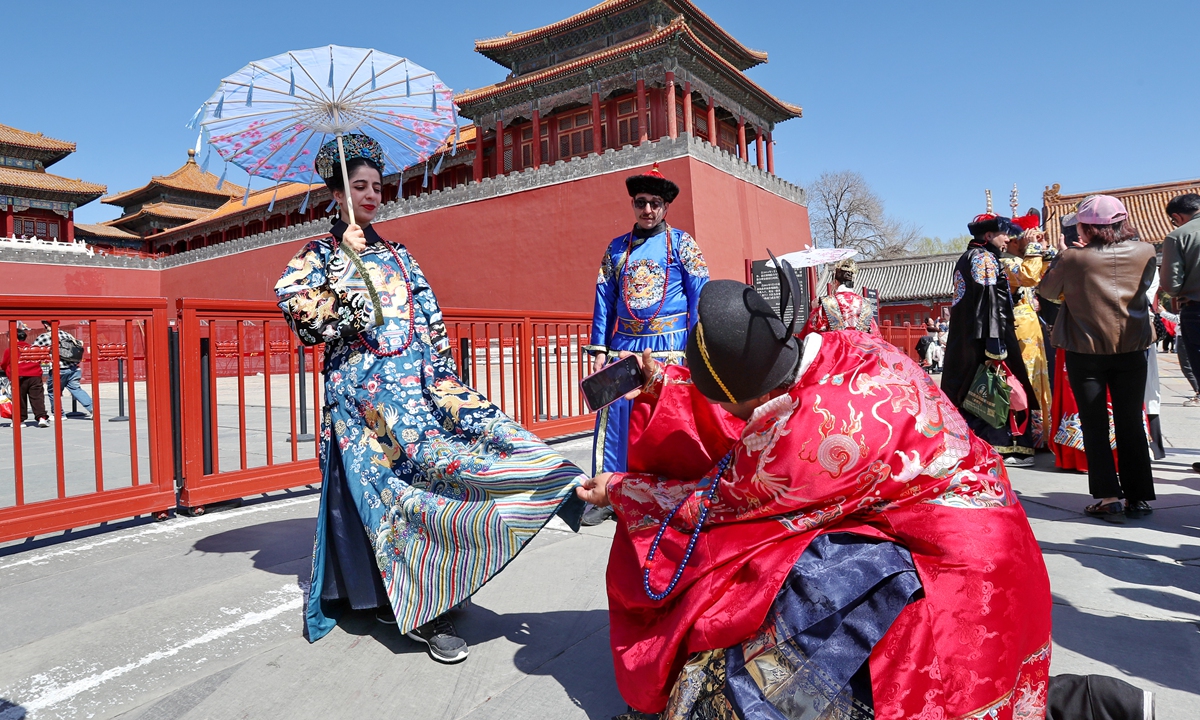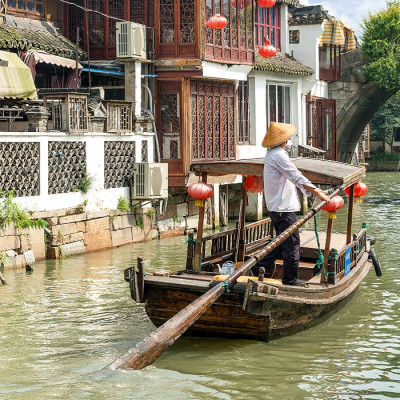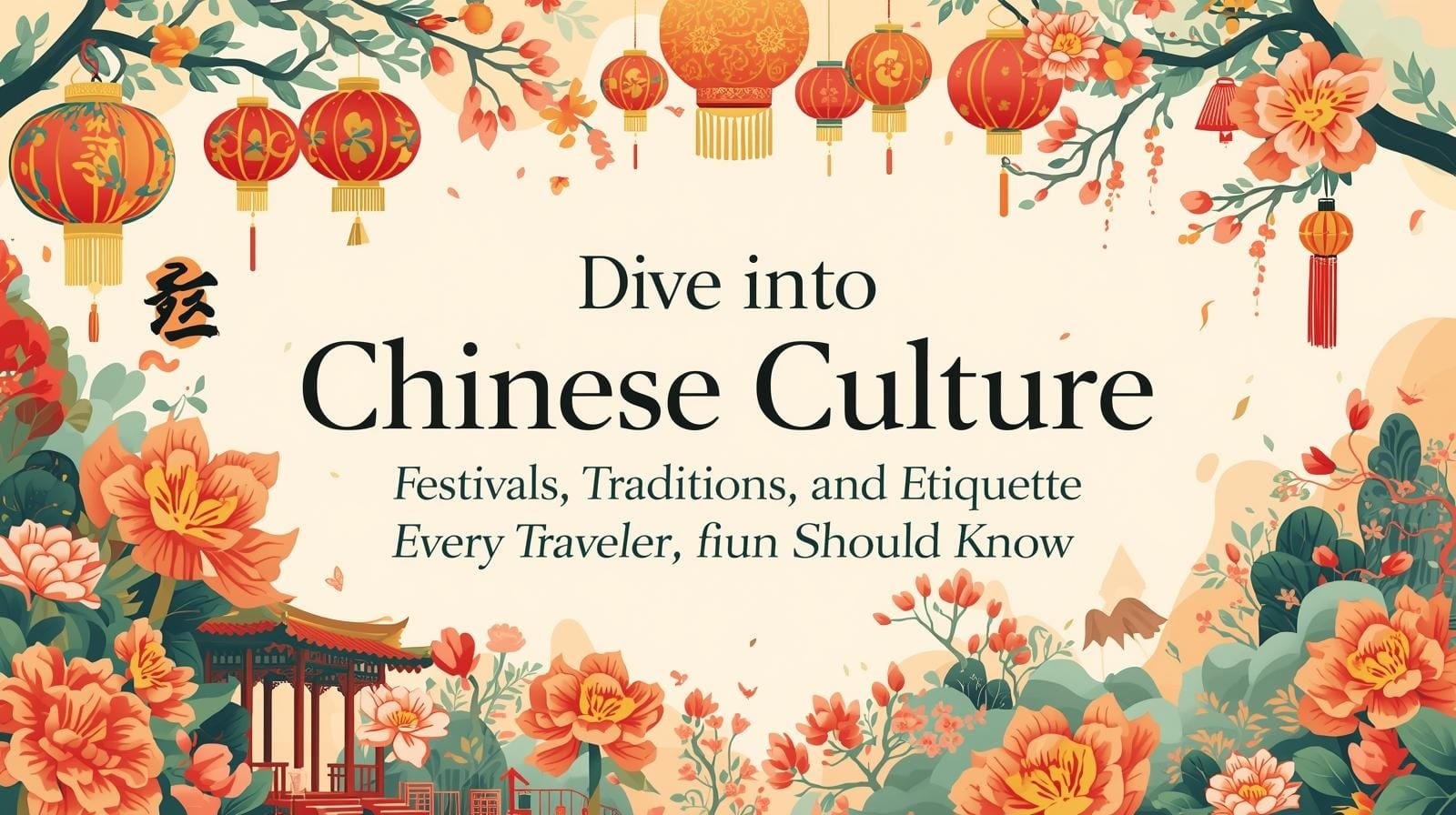Dive into Chinese Culture: Festivals, Traditions, and Etiquette Every Traveler Should Know

Welcome to the vibrant world of Chinese culture, where ancient traditions blend seamlessly with modern life to create unforgettable experiences. For travelers eager to explore China, understanding its festivals, traditions, and etiquette is key to an immersive China culture adventure. Whether you’re wandering through bustling markets, joining a lantern-lit celebration, or sharing a meal with locals, these elements offer deep cultural experiences in China that go beyond the surface. Here at jusha.travel, we love sharing tips to make your China journey unforgettable, helping you connect with the heart of this fascinating country while enhancing your Chinese culture for travelers.
In this China festivals guide, we’ll unpack the essentials of Chinese traditions, providing practical insights to navigate social norms and celebrate like a local. From the explosive joy of Chinese New Year to the subtle art of gift-giving, these practices not only enrich your trip but also foster meaningful connections. Let’s dive in and explore how embracing these customs can transform your visit into a truly authentic experience.
Chinese Festivals: A Gateway to Immersive Experiences

Chinese festivals are the heartbeat of the nation’s cultural rhythm, offering travelers a firsthand glimpse into immersive China culture. These events, often tied to the lunar calendar, emphasize family, community, and historical myths, making them perfect for those seeking authentic cultural experiences in China. As a traveler, participating in these celebrations can turn a simple trip into a memorable story to share back home.
Take the Chinese New Year, or Spring Festival, for instance—China’s most anticipated event. This festival marks the lunar new year with traditions like thorough house cleaning to sweep away bad luck, decorating with red banners for prosperity, and exchanging hongbao (red envelopes filled with money) for good fortune. Fireworks light up the skies to ward off evil spirits, and families gather for reunions filled with symbolic dishes, such as dumplings shaped like ancient currency. Lasting up to 15 days and culminating in the Lantern Festival, it’s an ideal opportunity for Chinese culture for travelers to witness the emphasis on renewal and togetherness https://jusha.travel/how-to-celebrate-chinese-new-year-in-china-like-a-pro/. For more on these customs, check out this insightful guide from Ibn Battuta Mall.
Another highlight is the https://jusha.travel/how-to-experience-chinas-mid-autumn-festival-with-locals/ Mid-Autumn Festival, held on the 15th day of the eighth lunar month. Families admire the full moon while enjoying mooncakes—round pastries symbolizing reunion and completeness. This festival underscores the Chinese value of harmony, with lantern walks and storytelling sessions that create a magical atmosphere. If you’re visiting during this time, try making your own mooncakes or joining a communal event to deepen your understanding of Chinese traditions explained.
Don’t miss the Dragon Boat Festival, commemorating the ancient poet Qu Yuan with thrilling boat races and the eating of zongzi (sticky rice dumplings). This event promotes health and community spirit, blending competition with cultural reverence https://jusha.travel/exploring-chinese-festivals-culture/. For a comprehensive China festivals guide, explore this resource on Chinese festivals and customs. These festivals not only provide entertainment but also offer practical tips, like learning basic phrases in Mandarin to engage with locals, enhancing your overall travel etiquette in China.
Key Chinese Traditions Explained: Building Cultural Connections

Delving into Chinese traditions explained reveals the foundational values that shape daily life in China, making them essential for any traveler aiming for a deeper cultural experiences in China. At the core is the concept of harmony, drawn from philosophies like yin and yang, which influence everything from family dynamics to environmental practices like Feng Shui. This balance encourages respect for nature and interpersonal relationships, helping travelers navigate interactions with grace and sensitivity https://jusha.travel/understanding-chinese-customs-etiquette/.
One prominent tradition is the emphasis on family and collectivism. In China, the family unit is paramount, with practices like ancestor worship during festivals such as Qingming (Tomb-Sweeping Day) demonstrating filial piety. Travelers might encounter this when visiting temples or gravesites, where offering incense and food honors deceased relatives. This ritual not only preserves history but also reinforces social bonds, aligning with immersive China culture by inviting participation in community events.
Superstitions play a role too, such as avoiding certain numbers or gifts that symbolize bad luck—like clocks, which represent the end of life. Instead, opt for red or gold-wrapped items to show respect https://jusha.travel/why-chinese-calligraphy-is-a-cultural-art-you-should-try/. These customs, highlighted in this complete guide to Chinese traditions, highlight the blend of ancient beliefs with modern life. For instance, practicing Tai Chi in a park offers a serene way to experience traditional health philosophies, blending physical activity with mindfulness.
Travelers can enhance their journey by incorporating these traditions into their itinerary. Try a tea ceremony, a ritual steeped in symbolism, where the precise way of brewing and serving reflects hospitality and respect. This practice, rooted in centuries of history https://jusha.travel/what-is-chinese-tea-culture-and-how-to-experience-it/, provides a calming counterpoint to China’s fast-paced cities and ties directly into Chinese culture for travelers, fostering mutual understanding.
Etiquette in China: Essential Tips for Respectful Travel

Mastering travel etiquette in China is crucial for a smooth and respectful visit, ensuring that your interactions with locals are positive and memorable. This aspect of Chinese culture for travelers focuses on the nuances of social behavior, helping you avoid common pitfalls while embracing authentic experiences.
Start with greetings: A simple nod or slight bow is customary, and when exchanging business cards or gifts, use both hands to show respect https://jusha.travel/understanding-chinese-customs-etiquette/. This gesture aligns with the cultural emphasis on humility and honor. For more on this, refer to this overview of Chinese customs.
Dining etiquette is another key area. In China, meals are communal, so use chopsticks properly—never point them at others or stick them upright in rice, as it resembles incense at funerals https://jusha.travel/how-to-master-chopsticks-before-your-china-food-adventure/. Serve elders or guests first, and it’s polite to leave a little food on your plate to indicate abundance. These practices, part of everyday Chinese traditions explained, can turn a meal into a cultural lesson. For example, trying regional specialties like Sichuan hotpot not only delights the palate but also encourages conversation and connection.
When visiting homes, bring a small gift, remove your shoes if prompted, and arrive on time. In conversations, steer clear of sensitive topics like politics, and maintain a calm demeanor to preserve harmony https://jusha.travel/chinese-feng-shui-and-how-to-experience-it/. These tips, outlined in this complete guide to Chinese culture, will help you build immersive China culture moments, such as participating in a local temple visit or festival parade.
By following these guidelines, you’ll navigate China with confidence, turning potential faux pas into opportunities for learning and growth.
In conclusion, exploring Chinese culture for travelers through its festivals, traditions, and etiquette enriches every aspect of your journey, from the thrill of a dragon boat race to the serenity of a tea ceremony. This China festivals guide, along with insights into travel etiquette in China and cultural experiences in China, equips you to engage deeply and respectfully, fostering lasting memories. At jusha.travel, we’re passionate about inspiring travelers like you to discover China’s wonders—whether it’s through our articles on food, technology, or hidden gems.
We’d love to hear about your own adventures! Share your thoughts in the comments below, visit jusha.travel for more inspiring content, or check out related articles to plan your next trip. Safe travels and immerse yourself fully in the magic of China!

